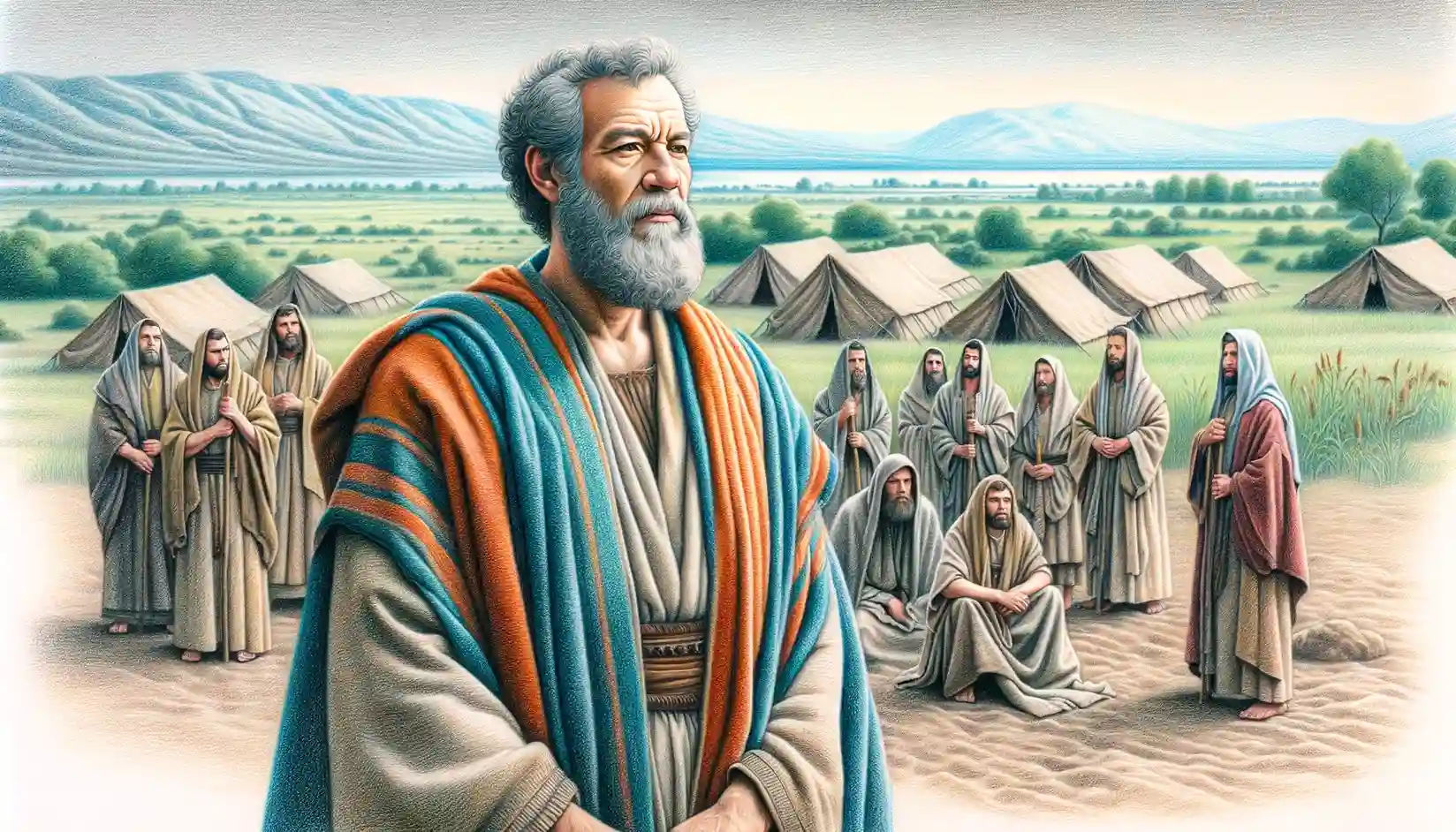
Jacob: Later Named Israel, Father of the Twelve Tribes
Jacob, later named Israel, is a significant patriarch in the Hebrew Bible. He is known for his complex life journey, his twelve sons who became the leaders of the twelve tribes of Israel, and his deep encounters with God.
Quick Facts
- Son of Isaac and Rebekah: Jacob was the younger twin brother of Esau.
- Birthright and Blessing: Jacob obtained Esau’s birthright and Isaac’s blessing through cleverness and deceit.
- Vision of the Ladder: Jacob had a vision of a ladder reaching to heaven with angels ascending and descending.
- Marriage and Family: He worked fourteen years for his uncle Laban to marry his daughters, Leah and Rachel.
- Wrestling with God: Jacob wrestled with an angel (or God) and was renamed Israel.
- Twelve Sons: Jacob’s twelve sons became the progenitors of the twelve tribes of Israel.
- Reconciliation with Esau: He reconciled with Esau after many years of estrangement.
- Journey to Egypt: Jacob moved to Egypt to join his son Joseph, who had become a ruler there.
Early Life and Deception
Jacob, the son of Isaac and Rebekah, was the younger twin brother of Esau. Even before birth, the twins struggled in their mother’s womb, foreshadowing the conflict between them (Genesis 25:22-26). Jacob, whose name means “he grasps the heel” or “he deceives,” lived up to his name by convincing Esau to sell his birthright for a bowl of stew (Genesis 25:29-34). Later, with Rebekah’s help, he deceived his father Isaac into giving him the blessing intended for Esau (Genesis 27:1-29).
Fleeing to Haran
To escape Esau’s wrath, Jacob fled to his uncle Laban’s house in Haran. During his journey, he had a significant vision of a ladder reaching to heaven with angels ascending and descending. In this dream, God reaffirmed the covenant made with Abraham and Isaac, promising Jacob land, descendants, and divine protection (Genesis 28:10-22).
Marriage and Family
Jacob’s time with Laban was marked by hard work and family drama. He fell in love with Rachel but was tricked into marrying her sister Leah first. Jacob worked fourteen years to marry both sisters (Genesis 29:15-30). Between Leah, Rachel, and their maidservants Bilhah and Zilpah, Jacob fathered twelve sons and one daughter (Genesis 29:31-30:24; 35:16-18). These sons became the patriarchs of the twelve tribes of Israel.
Wrestling with God
On his return to Canaan, Jacob had a transformative encounter at the Jabbok River, where he wrestled with a mysterious figure, often interpreted as an angel or God Himself. Jacob refused to let go until he received a blessing. The figure renamed him Israel, meaning “he struggles with God,” signifying a new identity and mission (Genesis 32:22-32).
Reconciliation with Esau
Despite his fears, Jacob successfully reconciled with Esau, who welcomed him with open arms. This reunion demonstrated Jacob’s growth from a deceiver to a man seeking peace and reconciliation (Genesis 33:1-11).
Journey to Egypt
Later in life, Jacob faced a severe famine that brought his family to Egypt, where his long-lost son Joseph had risen to power. The reunion with Joseph was emotional, and Jacob’s family settled in Egypt under Joseph’s protection. Before his death, Jacob blessed his sons and Joseph’s two sons, Ephraim and Manasseh, extending the Abrahamic covenant (Genesis 48-49). Jacob died in Egypt but was buried in the cave of Machpelah in Canaan, alongside Abraham and Isaac (Genesis 50:1-14).
Theological Themes
Jacob’s story conveys several key theological themes:
- Divine Providence: Despite human deceit and conflict, God’s plan and promises prevail.
- Transformation and Identity: Jacob’s journey from deceit to becoming Israel highlights personal transformation and divine purpose.
- Covenant and Blessing: The continuation of the Abrahamic covenant through Jacob underscores God’s faithfulness and the importance of blessings.
Legacy and Impact
Jacob’s legacy is foundational in the history of Israel. As the father of the twelve tribes, his story is integral to the identity and heritage of the Jewish people. His life, marked by struggle, growth, and divine encounters, continues to inspire and teach about faith, perseverance, and God’s faithfulness.
Conclusion
Jacob, later named Israel, is a patriarch whose life journey from deceit to reconciliation, his twelve sons who founded the twelve tribes, and his profound encounters with God, form a cornerstone of biblical history and theology.
